Remember when interest rates were bouncing around the 6-7% mark, and homes were flying off the shelves? And remember how buyers in that wild market would forgo inspections, write offers on the hoods of their cars, and painstakingly draft impassioned letters of introduction to sellers, pleading for clemency in the life-sentence of homelessness the market was imposing on them? We’ve all watched the steady deflation of the confidence that accompanied those times, to be replaced by the looming grey cloud of indecision and angst.
However, the reality is that rates have fluctuated less than 3 points in the past 8 years (2000-2007)- all the way back as far as 2000, when we reached a high that year of 8.52%, right around the time the DotBombs were imploding, and the country was talking recession. The lowest we’ve seen since then was June of 2003, when rates briefly bottomed at 5.23%. Throughout the next 4 years, the lowest point was a short stop at 5.45% in March of 2004. The remainder of that timespan was spent hovering between the high 5’s, to the high 6’s.
On the surface of it, there are a few obvious reasons for the mental shift; the subprime collapse, Wall Street’s subsequent malaise, an interminable election, to accompany an equally interminable war, and the list goes on. However, as I look at the chart of interest rates over the past 30 years, I can’t help but think that maybe the Fed’s got it all wrong. Maybe instead of a stimulus carrot, in the form of lowered interest rates, Bernanke needs to provide a stimulus stick- in the form of a rate hike.
If you look at it, the market’s appear stuck; buyer’s aren’t buying, businesses are slowing, and banks are still losing money, which we, the taxpayers, get to shoulder as part of our tax burden thanks to the generous ‘handout’ they were provided earlier this year. Part of the revenue stream those banks need comes from interest rates- the wider the spread, the better. If you look at it, we’re in a descending spiral on most fronts: shrinking employment numbers, declining prices on homes, fuel, and consumer goods, and further rumors of lower interest rates. It all sounds like a serious lack of confidence.
Maybe, and this may sound counterintuitive, but humor me for a minute. What if the Fed announced they were going to begin hiking interest rates? I’m guessing there would suddenly be a significant number of homebuyers finding a new motivation to buy, as they witnessed the erosion of their buying power in very real terms. Rather than waiting like school girls in a game of double dutch, anxiously timing the next swing of the market, they’d have a clear signal that the rope was on the upswing, and it’s time to play, or miss out.
Wouldn’t a rate hike also indicate a bump in confidence from those in the know? If inflation, rather than deflation, were a concern, wouldn’t that indicate economic growth? And, taking this little confidence game to its logical end, wouldn’t we all feel just a little better knowing that steps were being taken to prevent things from getting out of hand in the growth department?
Assuming we all bought the story, which thus far we’re all assuming we’ve got the inside scoop on the status quo, wouldn’t we start acting just that little bit more confident in our future earning ability? And how do you think that would affect the bottom line? I, for one, think it’s worth a try. I mean, put in perspective, I like my confidence game a whole lot more than the one Bernard Madoff pulled!
Author’s Note: I prepared this as a draft the day before the Fed annouced they were dropping the rate to the ‘New Historic Low’. I guess we’re not on the same wavelength. However, in my defense, as the previous link indicates, response to this news has been mixed, and with a couple of days to think about it, investors are already looking for new ways to outsmart themselves.
